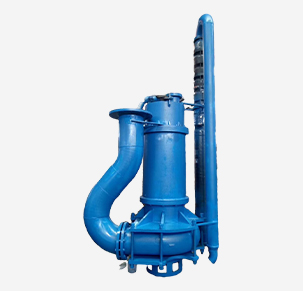Lithuanian
- Afrikaans
- Albanian
- Amharic
- Arabic
- Armenian
- Azerbaijani
- Basque
- Belarusian
- Bengali
- Bosnian
- Bulgarian
- Catalan
- Cebuano
- Corsican
- Croatian
- Czech
- Danish
- Dutch
- English
- Esperanto
- Estonian
- Finnish
- French
- Frisian
- Galician
- Georgian
- German
- Greek
- Gujarati
- Haitian Creole
- hausa
- hawaiian
- Hebrew
- Hindi
- Miao
- Hungarian
- Icelandic
- igbo
- Indonesian
- irish
- Italian
- Japanese
- Javanese
- Kannada
- kazakh
- Khmer
- Rwandese
- Korean
- Kurdish
- Kyrgyz
- Lao
- Latin
- Latvian
- Lithuanian
- Luxembourgish
- Macedonian
- Malgashi
- Malay
- Malayalam
- Maltese
- Maori
- Marathi
- Mongolian
- Myanmar
- Nepali
- Norwegian
- Norwegian
- Occitan
- Pashto
- Persian
- Polish
- Portuguese
- Punjabi
- Romanian
- Russian
- Samoan
- Scottish Gaelic
- Serbian
- Sesotho
- Shona
- Sindhi
- Sinhala
- Slovak
- Slovenian
- Somali
- Spanish
- Sundanese
- Swahili
- Swedish
- Tagalog
- Tajik
- Tamil
- Tatar
- Telugu
- Thai
- Turkish
- Turkmen
- Ukrainian
- Urdu
- Uighur
- Uzbek
- Vietnamese
- Welsh
- Bantu
- Yiddish
- Yoruba
- Zulu
Telephone: +86 13120555503
Email: frank@cypump.com
Spa . 11, 2024 16:35 Back to list
High-Efficiency Slurry Pump Impeller for Wholesale Applications and Optimal Performance
Understanding Wholesale Slurry Pump Impellers
Slurry pumps play a vital role in various industries where the transportation of viscous mixtures, often containing solids, is necessary. Central to the efficiency of these pumps is the impeller, a key component that drives the movement of slurry through the pump's casing. As industries continue to evolve, the demand for high-quality slurry pump impellers has surged, leading to a burgeoning wholesale market. This article delves into the essential aspects of wholesale slurry pump impellers, including their functions, types, materials, and the factors influencing their selection.
The Role of Impellers in Slurry Pumps
The impeller is the rotating part of the slurry pump, designed to convert electrical energy into kinetic energy. As it rotates, it creates a centrifugal force that propels the slurry from the inlet to the outlet of the pump. The efficiency of this process directly depends on the design and construction of the impeller. A well-designed impeller ensures optimal flow rates, minimizes wear and tear, and enhances the overall performance of the pump.
Types of Slurry Pump Impellers
Slurry pump impellers come in various designs, each tailored for specific applications. The most common types include
1. Open Impellers These designs consist of a simple blade arrangement without a covering shroud. They are ideal for handling slurries with large solids due to their ability to pass larger particles without clogging. Open impellers are often used in applications where the slurry contains coarse materials.
2. Semi-Open Impellers This type features a partial shroud, offering a balance between efficiency and the ability to handle solids. Semi-open impellers are versatile and can be employed in numerous applications, including those involving fine particles.
3. Closed Impellers Characterized by having a fully shrouded design, closed impellers are more efficient in transferring energy to the fluid. They are best suited for clear liquids and provide optimal performance in low-solids applications. However, they can struggle with larger particles, leading to potential clogging.
4. Vortex Impellers Designed to handle highly viscous slurries, vortex impellers create a vortexing motion that allows for the effective movement of thick materials without damaging the solids. This design is particularly effective in certain industrial applications where traditional impellers might fail.
Materials Used in Impeller Manufacture
wholesale slurry pump impeller

The choice of material for slurry pump impellers is crucial, as it impacts both durability and performance
. Common materials include- Cast Iron Known for its strength and wear resistance, cast iron is the go-to material for many standard slurry applications. - Stainless Steel Offering excellent corrosion resistance, stainless steel is preferred in industries where chemical corrosion is a concern. - Rubber-lined In environments where abrasion is a significant issue, rubber-lined impellers provide superior wear resistance, extending the pump's life. - Polyurethane This material is often used for its flexibility and resistance to wear, making it suitable for handling aggressive slurries.
Factors Influencing Impeller Selection
Several factors must be considered when selecting a slurry pump impeller, including
1. Slurry Characteristics The size, concentration, and abrasiveness of the particles in the slurry dictate the type of impeller needed. Understanding these characteristics ensures optimal performance.
2. Pump System Design The overall design of the slurry pump system, including the piping layout and the pump's operational parameters, affects which impeller type will succeed.
3. Operational Conditions Factors such as temperature, pressure, and required flow rates should align with the capabilities of the impeller. Selecting an impeller that operates efficiently under specific conditions can enhance the pump’s lifespan and reliability.
4. Cost Considerations Wholesale prices for slurry pump impellers can vary widely based on design, materials, and manufacturer. Balancing performance needs with budget constraints is essential.
Conclusion
Wholesale slurry pump impellers are a critical component in the efficient operation of slurry pumps across numerous industries. By understanding the different types of impellers, the materials used in their construction, and the factors influencing their selection, businesses can make informed decisions that enhance pump performance and longevity. As the demand for slurry pumps continues to grow, investing in high-quality impellers will undoubtedly prove beneficial for operational efficiency and consistency.
-
Large Industrial Sludge Slurry Pump Mining Wear-resistant Solutions
NewsJul.28,2025
-
High-Performance Septic Tank Pumps for Reliable Wastewater Management
NewsJul.26,2025
-
High Efficiency Horizontal Split Case Pump for Industrial Use
NewsJul.25,2025
-
Flue Gas Desulfurization Pump for Efficient Chemical Processing
NewsJul.24,2025
-
High-Efficiency Axial Flow Pump for Water Transfer & Irrigation
NewsJul.23,2025
-
High-Efficiency Horizontal Split Case Pump for Industrial Use
NewsJul.22,2025










